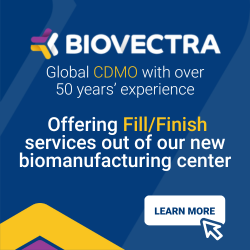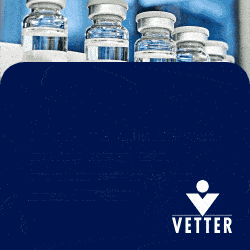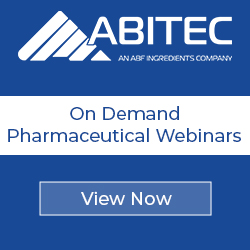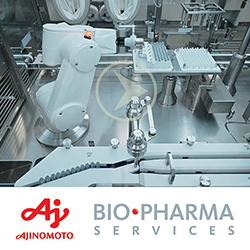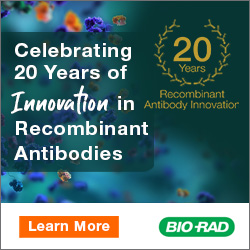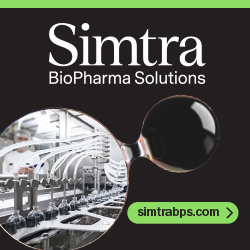4/10/2012
Catalent & BASF Join Forces to Solve Bioavailabilty Challenges
Catalent Pharma Solutions and BASF recently announced they have entered into a broad collaboration and Open Alliance to provide solutions to overcome bioavailability challenges of new molecular entities with solubility or permeability challenges.
The companies aim to combine their world-leading expertise to provide pharmaceutical customers with a unique range of seamless solutions to address pipeline challenges with a large majority of BCS Class II and IV poorly bioavailable compounds. From feasibility studies across multiple technologies, solid-state chemistry, consulting and training, expert formulation services, excipients, and optimal dose form development, to scale-up and supply, BASF and Catalent provide a full solution to one of the most important pipeline challenges in the industry, getting better treatments to market faster.
BASF has extensive ingredient formulation and material science expertise, as well as world-class excipient products and has been a leader in developing hot-melt extrusion technology solutions. Catalent is the leading global partner in drug formulation and development as well as in finished oral dose manufacturing, with more than 75 years of experience in providing bioavailability solutions.
“We are very pleased to collaborate with BASF to bring this unique and impactful solution to our customers,” said Ian Muir, President of Catalent’s Modified Release Technologies business unit. “BASF brings significant strengths and expertise that match very well with Catalent’s expertise in offering multiple solutions for poorly soluble compounds; including our Softgel platform and OptiMelt hot-melt extrusion technologies. Our proven track record of developing, scaling up, and manufacturing pharmaceutical products globally also provides for an important seamless integration from development to commercialization and ongoing supply.”
“We are glad to bring our in-depth knowledge of polymeric excipients, including innovations like SOLUPLUS into this open alliance,” added Ralf Fink, VP Global Marketing at BASF Pharma Ingredients & Services business unit. “With our broadest portfolio of solubilizers and excipients for hot-melt extrusion, coupled with Catalent’s strengths in development, formulation, and manufacturing, we are in a unique position to solve the solubility challenge. With this open alliance, we help our customers in the development and commercialization of drugs with poor bioavailability.”
Catalent has made significant investments in OptiMelt hot-melt extrusion and fluid bed lab, pilot, and commercial-scale equipment at its Schorndorf, Germany, facility, OptiMelt hot-melt extrusion at its Somerset, NJ, facility, training and seamless method development to operationalize this open alliance. BASF is continuously investing in new excipients to provide advanced solutions for the pharmaceutical industry.
From drug and biologic development services to delivery technologies to supply solutions, Catalent Pharma Solutions has the deepest expertise, the broadest offerings, and the most unique technologies in the industry. With over 75 years of experience, Catalent helps customers get more molecules to market faster, enhance product performance, and provide superior, reliable manufacturing and packaging solutions. Catalent employs approximately 9,400 people at 29 facilities worldwide and in fiscal year 2011 generated more than $1.6 billion in annual revenue. Catalent is headquartered in
BASF is the world’s leading chemical company: The Chemical Company. Its portfolio ranges from chemicals, plastics, performance products and crop protection products to oil and gas. It combines economic success, social responsibility, and environmental protection. Through science and innovation BASF enables customers in almost all industries to meet the current and future needs of society. Further information on BASF is available at www.basf.com or www.pharma-ingredients.basf.com.
GlaxoSmithKline to Increase Its Ownership in Theravance
GlaxoSmithKline plc (GSK) and Theravance, Inc. recently announced they have entered into a stock purchase agreement, under which Theravance will issue, and GSK will acquire, 10,000,000 shares of Theravance common stock at a price of $21.2887 per share, for a total investment of $212,887,000.
Following this purchase, GSK would own 25,814,421 shares of Theravance common stock, which would increase GSK’s ownership from approximately 18.3% to approximately 26.8% of the total outstanding capital stock of Theravance. The price per share was determined based upon a 7.5% premium to the volume-weighted average price per share of Theravance common stock over the 5-day period ending March 30, 2012, which was $19.8034.
The transaction is subject to certain closing conditions, including approval of Theravance’s stockholders at their Annual Meeting scheduled for May 15, 2012, and expiration of the waiting period under the Hart-Scott-Rodino Act. The transaction is expected to be completed shortly after the Theravance Annual Meeting. GSK expects to continue to account for its total stake in Theravance as an investment held at fair value, due to the existing governance agreement which places limitations on GSK’s voting rights.
In November 2002, Theravance entered into a long-acting beta2 agonist (LABA) collaboration with GSK to develop and commercialize a once-daily LABA product candidate either as a single agent or in a combination medicine for the treatment of asthma and/or chronic obstructive pulmonary disease (COPD). The inhaled corticosteroid (ICS)/ LABA combination, Relovair, has now completed its Phase III development, and GSK intends to submit regulatory applications for COPD in the
Theravance is a biopharmaceutical company with a pipeline of internally discovered product candidates and strategic collaborations with pharmaceutical companies. Theravance is focused on the discovery, development, and commercialization of small molecule medicines across a number of therapeutic areas, including respiratory disease, bacterial infections, and central nervous system (CNS)/pain. For more information, visit www.theravance.com.
Astex Announces Interim Phase I/II AML Data
Astex Pharmaceuticals, Inc. recently announced that interim Phase I/II clinical data from subcutaneous SGI-110, a novel hypomethylating agent, demonstrated differentiated PK profile, good tolerability, and preliminary promising complete responses in heavily pretreated acute myelogenous leukemia (AML) patients enrolled in the Phase I segment of the trial. The data was presented at an oral session at the American Association for Cancer Research (AACR) 2012 Annual Meeting in
The randomized Phase I/II first-in-human dose escalation study enrolled 66 patients with previously treated intermediate or high-risk myelodysplastic syndromes (MDS) or AML as of March 28, 2012. Of seven evaluable refractory AML patients who had adequate hypomethylation with no prior resistance to hypomethylating agents (HMAs), two showed complete response, and one showed partial response. Additionally, the pharmacokinetic (PK) data suggests delivery of decitabine by SGI-110 achieves high decitabine exposure and longer half-life than decitabine intravenous (IV) infusion. The pharmacodynamic (PD) data shows potent dose-dependent hypomethylation induction in the daily regimen.
“This interim SGI-110 data is very encouraging for refractory AML patients,” said Jean-Pierre Issa, MD, Professor of Medicine and Director of the Fels Institute for Cancer Research and Molecular Biology at
“This is a great example of collaboration between SU2C and industry,” said Stephen B. Baylin, MD, Professor of Oncology and Medicine, Deputy Director of the Sidney Kimmel Comprehensive Cancer Center at Johns Hopkins; Co-Leader of the Epigenetics Dream Team of SU2C. “The trial used a biologically driven design where dose escalation was based on biological efficacy of the drug and not just toxicities as is often the case with cancer drugs. Achieving clinical efficacy at the biologically effective doses is a validation of this innovative design.”
Astex Pharmaceuticals is dedicated to the discovery and development of novel small molecule therapeutics with a focus on oncology. The company is developing a proprietary pipeline of novel therapies and is creating de-risked products for partnership with leading pharmaceutical companies. Astex Pharmaceuticals developed Dacogen (decitabine) for injection and receives significant royalties on global sales. For more information, visit www.astx.com.
OvaScience Raises $37 Million in Series B Financing
OvaScience recently announced it has completed a $37-million Series B financing. The financing was led by General Catalyst. Existing investors, Bessemer Venture Partners and Longwood Fund, were joined by new, top-tier investors BBT Capital Management Advisors, LLC, Cycad Group, Hunt BioVentures, RA Capital and a large, global institutional investor, among others. In conjunction with this financing, John Simon, Managing Director of General Catalyst, has joined the OvaScience board of directors. Leerink Swann LLC acted as lead placement agent for the offering.
OvaScience plans to use the proceeds from the financing to support the development and commercialization of its fertility treatment approaches based on the egg precursor cell discoveries of OvaScience Co-Founder Jonathan Tilly, PhD, Director of the Vincent Center for Reproductive Biology, Chief of Research for Massachusetts General Hospital (MGH) Vincent Department of Obstetrics and Gynecology, and Professor, Department of Obstetrics, Gynecology and Reproductive Biology at Harvard Medical School (HMS). OvaScience holds an exclusive license from MGH to an issued
“Under the leadership of its world-class management and scientific teams, OvaScience has great potential to develop and commercialize new fertility treatment options for women,” said John Simon, Managing Director of General Catalyst. “OvaScience is rapidly advancing its patented fertility technology aimed at improving fertility outcomes, and we’re pleased to be part of a company that has a unique and differentiated approach in an area with a clear, unmet need.”
“OvaScience is focused on improving the success rates of fertility treatment options currently available for women,” added Michelle Dipp, MD, PhD, CEO of OvaScience. “As a result of this financing, the company expects to be able to advance its pipeline of fertility treatment approaches.”
OvaScience is a privately held fertility company focused on the discovery, development, and commercialization of novel treatments for infertility. OvaScience is working to improve the treatment of female infertility based on patented technology exclusively licensed from
Amgen Signs $50-Million Deal to Develop Five Biotech Drugs
Amgen and AstraZeneca recentlyannounced an agreement to jointly develop and commercialize five monoclonal antibodies from Amgen’s clinical inflammation portfolio: AMG 139, AMG 157, AMG 181, AMG 557, and brodalumab (AMG 827).
The companies believe all the molecules have novel profiles and offer the potential to deliver important treatments across multiple indications in inflammatory diseases. The collaboration will provide Amgen with additional resources to optimally progress its portfolio, and Amgen will benefit from the strong respiratory, inflammation, and asthma development expertise of MedImmune, AstraZeneca’s biologics arm. The collaboration will also capitalise on AstraZeneca’s global commercial reach in respiratory and gastrointestinal diseases. The agreement does not include certain territories previously partnered by Amgen for brodalumab with Kyowa Hakko Kirin and AMG 557 with Takeda.
Under the terms of the agreement, AstraZeneca will make a one-time $50-million up-front payment, and the companies will share both costs and profits. Based on current plans, approximately 65% of costs for the 2012 to 2014 period will be funded by AstraZeneca. Thereafter, the companies will split costs equally. Amgen will book sales globally and will retain a low single-digit royalty for brodalumab and a mid single-digit royalty for the rest of the portfolio after which the companies will share profits equally.
AstraZeneca will lead the development and commercialization strategy of AMG 139, AMG 157, and AMG 181, while Amgen will lead the development and commercialization strategy of brodalumab and AMG 557. Each development and commercialization lead will be under the oversight of joint governing bodies. For brodalumab, commercial promotion will be split. Amgen will promote in dermatology indications in the
Amgen discovers, develops, manufactures, and delivers innovative human therapeutics. A biotechnology pioneer since 1980, Amgen was one of the first companies to realize the new science’s promise by bringing safe and effective medicines from lab, to manufacturing plant, to patient. For more information, visit www.amgen.com.
AstraZeneca is a global, innovation-driven biopharmaceutical business with a primary focus on the discovery, development, and commercialization of prescription medicines for gastrointestinal, cardiovascular, neuroscience, respiratory and inflammation, oncology, and infectious disease. For more information, visit www.astrazeneca.com.
Spectrum Pharmaceuticals to Acquire Allos Therapeutics
Spectrum Pharmaceuticals and Allos Therapeutics, Inc. recently announced they have signed a definitive agreement under which Spectrum will acquire all of the outstanding shares of Allos for $1.82 per share in cash plus one Contingent Value Right (CVR). This CVR entitles Allos stockholders to an additional payment of $0.11 per share in cash if certain European regulatory approval and commercialization milestones for FOLOTYN are achieved. The up-front portion of the transaction is valued at up to $206 million on a fully diluted basis, and $108 million net of Allos’ cash balance at the end of 2011. The acquisition is expected to be accretive to Spectrum on a cash basis in the fourth quarter of 2012.
Allos markets FOLOTYN (pralatrexate injection), which is a folate analogue metabolic inhibitor. In September 2009, the US FDA granted accelerated approval for FOLOTYN for use as a single agent for the treatment of patients with relapsed or refractory peripheral T-cell lymphoma (PTCL). FOLOTYN generated more than $35 million in US net sales in 2010 and $50 million in 2011.
“For Spectrum, this acquisition adds another diversified source of revenue, accelerates the development of our hematology franchise, and affirms our commitment to becoming a leader in the treatment of lymphoma,” said Rajesh C. Shrotriya, MD, Chairman, CEO and President of Spectrum Pharmaceuticals. “ZEVALIN and FOLOTYN are targeted to the same hematologists/oncologists for the treatment of different forms of lymphoma. Thus, we are well positioned to immediately leverage the combined strengths of the two companies, while expanding the number of cancer patients that can benefit from our products. Because of our strong operating performance, cash reserves, fiscal discipline, and a revolving credit line, we do not need to issue any equity to close this transaction.”
Under the agreement, Spectrum will commence a tender offer to purchase all of the outstanding shares of Allos for $1.82 in cash plus one CVR. The CVR will entitle each Allos stockholder to an additional payment of $0.11 per share in cash if FOLOTYN obtains conditional approval for the treatment of patients with relapsed/refractory PTCL in
The transaction has been unanimously approved by the Boards of Directors of both companies. Additionally, Warburg Pincus, Allos’ largest shareholder and the owner of approximately 24% of Allos’ outstanding shares, along with the directors and certain officers of Allos, have entered into tender and voting agreements pursuant to which such stockholders have agreed to tender all of their Allos shares into the tender offer and vote their shares in favor of the transaction. The transaction is expected to close in the second quarter of 2012. Spectrum currently intends to finance the acquisition with a combination of cash on hand and a revolving credit line from Bank of America, N.A.
Spectrum Pharmaceuticals, a biotechnology company with a primary focus in oncology and hematology, currently markets two oncology drugs, FUSILEV and ZEVALIN. In addition, Spectrum has two drugs, apaziquone and belinostat, in late-stage development. For more information, visit www.sppirx.com.
Allos Therapeutics is a biopharmaceutical company committed to the development and commercialization of innovative anti-cancer therapeutics. Allos is currently focused on the development and commercialization of FOLOTYN (pralatrexate injection), a folate analogue metabolic inhibitor. For more information, visit www.allos.com.
Total Page Views: 1516







